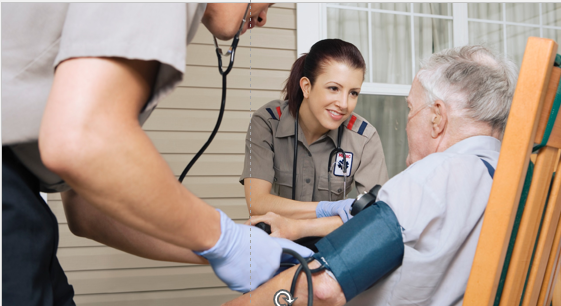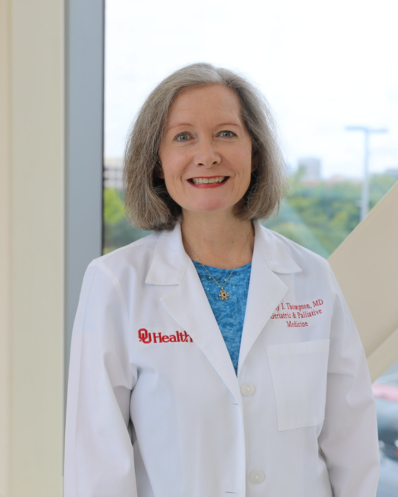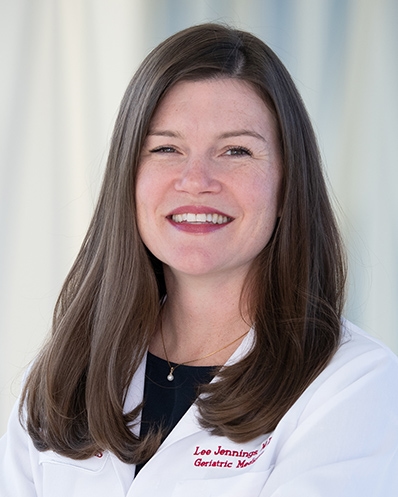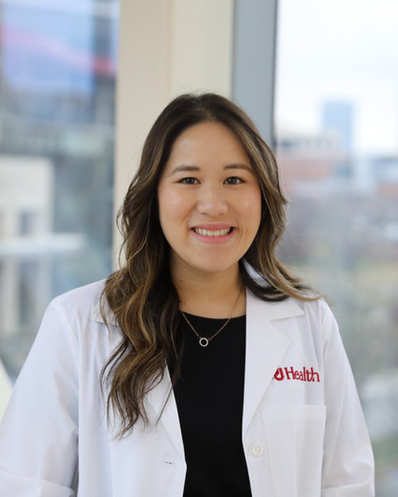Learn more about dementia care training, resources and services for healthcare professionals from the Oklahoma Dementia Care Network (OkDCN).
You can submit an online request by emailing: okdcn@ouhsc.edu
OkDCN offers free dementia education resources for healthcare providers across Oklahoma which includes in-service training to all Oklahoma nursing homes, trainings for health careers students at Oklahoma Technology Centers, and trainings for Oklahoma first responders. These trainings can be instrumental in changing perceptions and skills of frontline workers, educators, and first responders who work with nursing home residents and community members living with dementia. Please contact the Oklahoma Dementia Care Network at OkDCN@ouhsc.edu for more information!
Learn more about dementia care training, resources and services for healthcare professionals from the Oklahoma Dementia Care Network (OkDCN).
You can submit an online request by emailing: okdcn@ouhsc.edu
Mark your calendars to join us for a Training-For-Trainers presented by the University of Oklahoma’s Oklahoma Dementia Care Network (OkDCN). Ideal attendees are health program coordinators and educators from Career Technology Centers, Nursing Homes, Hospitals, and Tribal Nations. Elevate your training activities with dementia-specific content and take-home materials designed for health career preparation courses (ie. Career Tech's CNA, CMA, CMA CEU, LPN programs) and facility in-service efforts. Easily integrate this content into your programs with our Facilitator’s Guide and props.

These trainings are 60 minutes of didactic instruction, case-based learning, engaging role-play, and take-home materials.
Walking With Dementia helps learners describe cognitive challenges experienced by persons living with dementia while gaining empathy for the care of persons living with dementia. Teaches how to problem solve issues that arise with routine care of persons living with dementia.
Advanced Dementia Care helps learners better develop skills related to daily caring of persons living with dementia.
Bathing Without a Battle helps learners describe person-centered bathing and improves bathing care by using methods that increase comfort, warmth, and decreased pain.
Dementia Care Teams helps learners form quality teams for the care of persons living with dementia by building trust, learning by listening, appreciating yourself and others, and celebrating team success in dementia care.
Person Centered Care helps learners understand how to prioritize the feelings, attitudes, beliefs, and preferences of the person being cared for. Helps learners meet the needs of those being cared and achieve the best outcomes for both health professionals and the person being cared for.
Infection Control helps learners to understand core principles in creating an environment that aims to reduce transmission of infection, to discover tools and strategies for best practice in infection control in long-term care settings, and to professionally discuss methods for reducing infection transmission.
Skin Integrity helps learners understand special skin considerations associated with cognitive impairment. Teaches frontline caregivers to notice and to share their observations on skin issues of persons living with dementia with other medical professionals to prevent skin breakdown.
End of Life Care helps learners understand that persons living with dementia may live many years with an unpredictable disease progression, making end of life care challenging. Issues such as making medical decisions for persons living with dementia, being present for the these individuals at the end of their life, and supporting family members throughout are presented and discussed.
Age Friendly Dementia Care: What Matters Most teaches learners how to align care of the person living with dementia with the individual’s health goals and care preferences.
Age Friendly Dementia Care: Medication teaches learners to monitor the use of medications by persons living with dementia to ensure that medications don’t interfere with what matters to the individual, their mobility, and/or mentation across care settings.
Age Friendly Dementia Care: Mentation teaches learners how to prevent, identify, treat, and manage dementia, delirium, and depression across care settings.
Age Friendly Dementia Care: Mobility helps learners to better understand how to ensure that older adults move safely every day in order to maintain function and do what matters most to them.
Learn more about dementia care training, resources and services for healthcare professionals from the Oklahoma Dementia Care Network (OkDCN).
You can submit an online request by emailing: okdcn@ouhsc.edu









.jpg)



.jpg)

